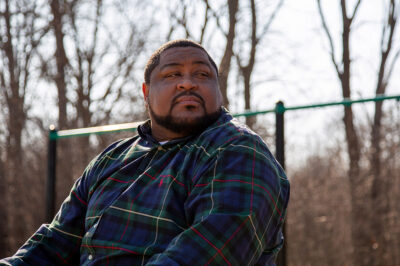1st Government Witness Acknowledges Difficulty in Finding Sexually Explicit Material Online; 2nd Government Witness Returns Monday to Conclude Testimony; Plaintiffs Have Option to Rebut Government Case Monday
FOR IMMEDIATE RELEASE
Friday, April 12, 1996
PHILADELPHIA — Testifying for the government today, Special Agent Howard A. Schmidt acknowledged, in answer to skeptical questioning by a three-judge panel, that it is “highly unlikely” for anyone to come across sexually explicit sites on the Internet by accident.
As the first witness for the government, Agent Schmidt began the morning with a live Internet tour and demonstration of a search for so-called indecency. The demonstration stopped short of actually displaying any of the images, but traced for the court the route by which Schmidt arrived at various web sites.
Schmidt acknowledged — under cross-examination — that majority of the sites he found would have been off limits had he been running a software program such as SurfWatch, that blocks access to Internet sites considered inappropriate for children.
Marjorie Heins, who conducted cross-examination for the ACLU, noted that Agent Schmidt’s expertise — and the government’s case — lies in focusing on a very narrow category of sexual material, much of which is already covered by existing obscenity law.
“In today’s testimony, the government attempted to divert the court’s attention from the serious concerns of our plaintiffs by focusing on material that is highly inflammatory and largely irrelevant to this case,” Heins said.
The consolidated cases of ACLU v. Reno and ALA v. DOJ challenge provisions of the Communications Decency Act that criminalize making available to minors “indecent” or “patently offensive” speech.
Under questioning by the judges, Agent Schmidt was asked how he would enforce the censorship law when confronted with a safe-sex information web-site that displayed an image illustrating how to put a condom on an erect penis.
Agent Schmidt said that since the context was “educational, not purely for pleasure purposes,” he would not censor the site but advise the publishers to post warnings.
His answer was different when asked how he would rate an online copy of the controversial Vanity Fair magazine cover featuring the actress Demi Moore, nearly naked and eight months pregnant.
In that case, Schmidt said, the Communications Decency Act would apply because the image was “for fun.” He also said, in answer to a query from Judge Stuart Dalzell, that the community standard as to the offensive of the image might be different for Minnesota than it would for New York.
“It is ironic that, according to the government, an explicit online image of an erect penis in an educational context would be acceptable, whereas Vanity Fair, a constitutionally protected publication containing a much less explicit image, would be censored,” Heins said.
Following Agent Schmidt’s testimony, the final plaintiff witness, Dr. Albert Vezza, told the judges about PICS (Platform for Internet Content Selection), a new rating system designed to allow parents to control children’s access to the Internet without censorship.
Dr. Vezza is associate director of the MIT Laboratory for Computer Sciences and has chief responsibility for the PICS project. He was unable to testify earlier in the case due to scheduling conflicts.
Dr. Vezza said he expected that wide industry acceptance of the PICS standard would enable any number of “third-party” organizations such as the PTA, the Christian Coalition or the Boy Scouts of America to rate content for Internet users.
The second and final government witness, Dr. Dan Olsen, a professor of computer science at Brigham Young University, took the stand in the mid-afternoon.
Dr. Olsen acknowledged that the PICS standard would allow parents to control their children’s Internet viewing according to their own values or via a rating system devised by a trusted organization.
He also acknowledged that a system he had conceived in which Internet sites must be labelled by the content originator, would not allow for such an independent rating scheme.
While plaintiff lawyers completed cross-examination of Dr. Olsen today, he will return on Monday for redirect by government lawyers and to answer any questions the judges may have.
It is now anticipated that Monday, April 15, will be the last day of trial in ACLU v Reno. Plaintiff lawyers will have the opportunity on Monday (instead of April 26) to call witnesses to rebut the governments’s testimony. However, the ACLU and ALA coalitions did not indicate which witnesses, if any they would call.
Because the April 26 rebuttal day is no longer necessary, the next date in court is set for June 3, when the three-judge panel will hear oral arguments from both plaintiffs and defendants.
The judges are expected to issue a ruling some time in the weeks following. Under expedited provisions, any appeal on rulings regarding the new censorship law will be made directly to the U.S. Supreme Court.
Lawyers for the ACLU appearing before the judges are Christopher Hansen, Marjorie Heins, Ann Beeson, and Stefan Presser, legal director of the ACLU of Pennsylvania.
Stay Informed
Sign up to be the first to hear about how to take action.





